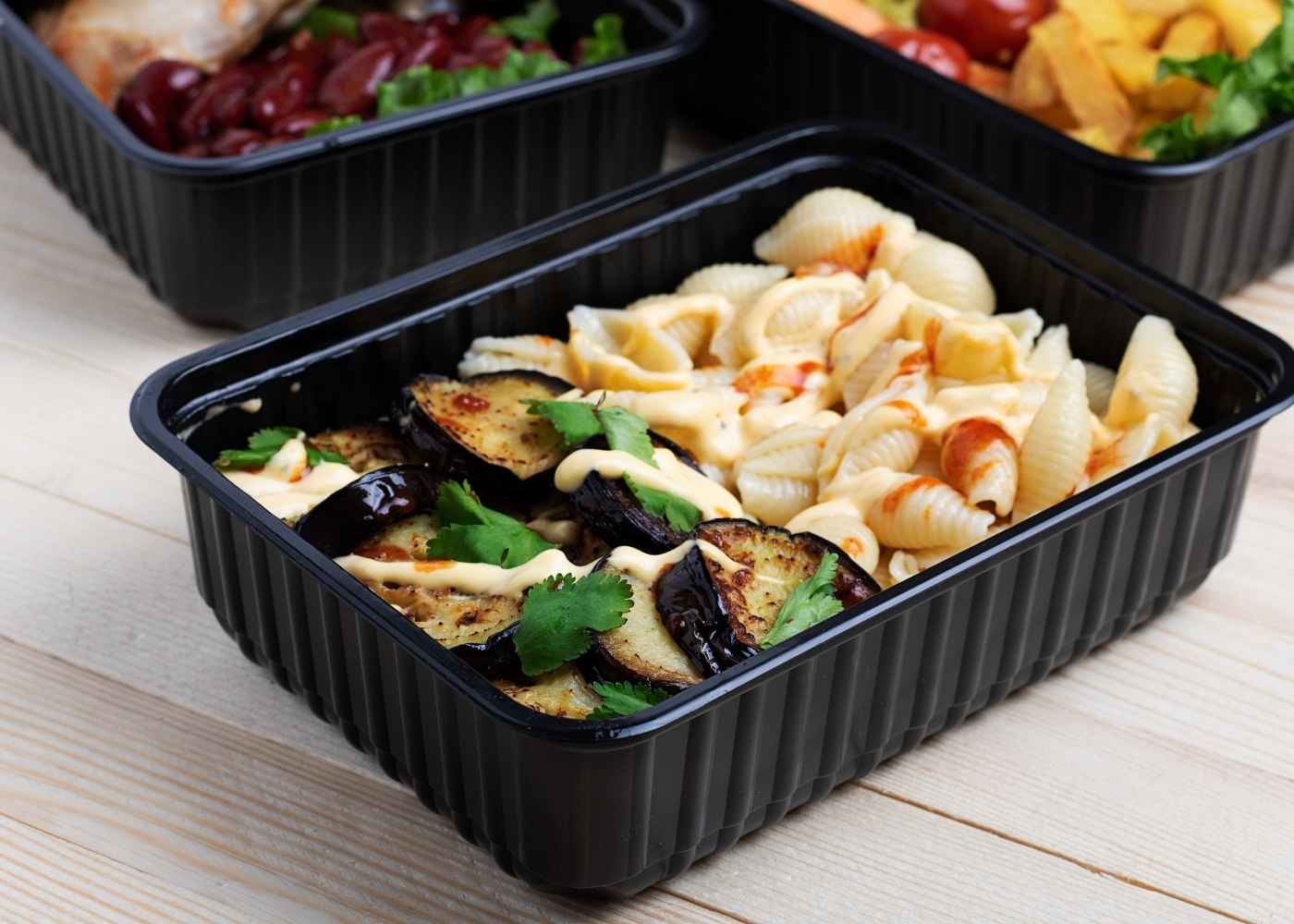
Meal planning is not only a great way to save time and
reduce stress in the kitchen, but it can also help you save money by making the
most of your ingredients and avoiding unnecessary trips to the grocery store.
In this post, we will share some tips and tricks to help you create a
budget-friendly meal plan that will last you a whole month. So let's get
started!
Meal Planning Basics
Meal planning is a crucial step in saving time and money
when it comes to cooking meals for a month. By creating a weekly menu and
organizing your grocery shopping accordingly, you can ensure that you have all
the ingredients you need and minimize food waste. Here are some tips to help
you get started:
The Importance of Meal Planning for Saving Time and Money
Meal planning allows you to take control of your meals and
avoid last-minute trips to the grocery store or ordering takeout. By planning
your meals in advance, you can save time by knowing exactly what to cook each
day. Additionally, meal planning helps you stick to a budget and avoid
overspending on groceries.
How to Start Meal Planning by Creating a Weekly Menu
To begin meal planning, create a weekly menu by deciding what meals you want to prepare for each day. Consider your family's preferences, dietary restrictions, and schedule. Write down the meals for each day of the week, including breakfast, lunch, dinner, and snacks.

Tips for Organizing Grocery Shopping Based on Meal Plans
After finalizing your weekly menu, make a detailed grocery
list with all the ingredients you need for your planned meals.
Organize your list by categories such as produce, meats,
dairy, and pantry staples to make shopping more efficient.
Consider grouping ingredients that are used in multiple
recipes to avoid buying more than necessary.
By following these meal planning basics, you can start
building a month's worth of affordable meal plans. This will help you save
time, money, and unnecessary stress in the kitchen.
Tips for Budget-Friendly Meal Planning
When trying to create a month's worth of affordable meal plans, it's important to keep your budget in mind. Here are some tips to help
you plan meals that won't break the bank:
Shopping for ingredients in bulk to save money
One of the best ways to save money on ingredients is by buying in bulk. Look for items like rice, pasta, beans, and canned goods that have a long shelf life and are often cheaper when purchased in larger quantities. Buying in bulk also helps reduce the number of grocery store trips you need to make throughout the month.

Using pantry staples in meal planning
Don't overlook the power of your pantry when meal planning.
Utilize ingredients you already have on hand, such as spices, oils, and sauces,
to create delicious and affordable meals. This can help minimize the need for
additional grocery store purchases.
Replacing expensive ingredients with more affordable options
If you come across a recipe that calls for expensive
ingredients, look for more cost-effective alternatives. For example, instead of
using fresh seafood, consider using frozen options or substituting a cheaper
protein like chicken or tofu. Be creative and find substitutions that fit
within your budget.
By following these tips, you can create meal plans that are
not only delicious but also affordable. Planning ahead and being mindful of
your budget will help you save money throughout the month.
Finding Affordable Ingredients
When it comes to creating affordable meal plans, finding
budget-friendly ingredients is key. Here are some tips to help you find
ingredients that won't break the bank:
1. Shopping at discount grocery stores for budget-friendly options
Discount grocery stores often offer lower prices compared to
regular supermarkets. Take the time to explore these stores in your area and
compare prices. You'll be surprised at how much you can save on your groceries.
2. Using coupons and deals to save money on ingredients
Keep an eye out for coupons and deals on groceries. Many
supermarkets offer digital coupons that you can load onto your store loyalty
card. Additionally, websites and apps dedicated to grocery savings can help you
find the best deals in your local area.
3. Buying seasonal ingredients for better prices
Seasonal produce tends to be more affordable and of better
quality. Take advantage of this by incorporating seasonal fruits and vegetables
into your meal plans. Not only will you save money, but you'll also enjoy
fresher and tastier ingredients.
By following these tips, you'll be able to find affordable ingredients that won't compromise the taste or nutrition of your meals.

Creative Ways to Use Leftovers
Don't let your leftovers go to waste! Here are some creative
ideas to make the most out of your leftover ingredients:
1. Make new meals with leftover ingredients: Get creative in
the kitchen and transform your leftovers into new dishes. For example, you can
use leftover chicken to make a delicious stir-fry or turn last night's roasted
vegetables into a flavorful soup.
2. Freeze leftover meals for future use: If you have a larger
portion of leftovers, consider freezing them for later. This way, you'll have a
quick and easy meal ready to go on busy days.
3. Create a leftover meal schedule to avoid food waste: Plan
your meals in a way that incorporates leftovers into your menu. For example,
use leftover grilled chicken in tacos the next day or incorporate leftover
roasted veggies into a salad. This will help you minimize waste and maximize
your ingredients.
Meal Prep for Success
Meal prepping is a game-changer when it comes to creating a month's worth of affordable meal plans. By dedicating a few hours each week to preparing and portioning meals in advance, you can save time, money, and stress throughout the month.

The Benefits of Meal Prepping
There are numerous benefits to meal prepping. First and
foremost, it helps you stay on track with your meal plan by having prepared
meals readily available. This means less temptation to order takeout or eat
out, which can save you a significant amount of money. Meal prepping also saves
you valuable time during busy weekdays, as you can simply grab a pre-prepared
meal and go.
Additionally, meal prepping allows you to take advantage of
bulk discounts and sales. By buying ingredients in bulk and portioning them out
for future meals, you can save money in the long run. It also helps reduce food
waste, as you can use up ingredients before they spoil.
Tips for Efficient Meal Prepping
To make your meal-prepping sessions as efficient as
possible, follow these tips:
1. Create a meal prep plan: Before you start, plan out which
meals you want to prep for the week. This will help you stay organized and
ensure you have all the necessary ingredients.
2. Invest in quality containers: Invest in durable containers
that are suitable for storing and reheating meals. Opt for ones that are
microwave-safe, freezer-friendly, and leak-proof.
3. Batch cook: Cook large quantities of ingredients, such as
proteins and grains, to use in multiple meals throughout the week. This will
save you time and effort in preparing individual meals.
4. Use efficient cooking methods: Choose cooking methods that
allow you to multitask, such as roasting vegetables while simmering a soup or
stew. This will help you make the most of your prep time.
5. Label and date containers: Properly label each container
with the name of the meal and the date it was prepared. This will help you keep
track of freshness and avoid confusion later on.
Creating a Meal Prep Schedule
Having a meal prep schedule can significantly streamline your
meal planning process. Consider setting aside a specific day each week
dedicated to meal prepping. Use this time to plan your meals, create a shopping
list, and prepare and portion out your ingredients and meals for the week.
Some people prefer to split their meal prepping into two
sessions, such as on Sundays and Wednesdays, to ensure freshness and variety.
Find a schedule that works best for you and your lifestyle.
Remember, meal prepping is all about setting yourself up for
success. It may take some trial and error to find the best approach for your
needs, but once you establish a solid routine, you'll be amazed at the time and
money you can save with a month's worth of pre-prepared meals.
Making the Most of Seasonal Produce
When it comes to meal planning, utilizing seasonal produce can offer a multitude of benefits. Not only is it usually more affordable, but it's also fresher and more flavorful. Here are some tips for incorporating seasonal produce into your meal plans:

The advantages of using seasonal produce in meal planning
Seasonal produce is not only more cost-effective, but it
also tends to be at its peak in terms of taste and nutritional value. By
choosing fruits and vegetables that are in season, you can enjoy their full
flavor potential and maximize their nutritional benefits.
Finding seasonal produce at local farmers markets
One great way to find and support local farmers while
enjoying the freshest produce is by visiting your nearest farmers market.
Farmers markets typically offer a wide variety of seasonal fruits, vegetables,
herbs, and even specialty items. Take the time to explore and discover new
ingredients that you can incorporate into your meal plans.
Incorporating seasonal flavors and ingredients into meals
Get creative with your meal planning by incorporating
seasonal flavors and ingredients. For example, during the summer, you can make
refreshing salads with juicy watermelon, crisp cucumbers, and ripe tomatoes. In
the fall, embrace the flavors of pumpkin, squash, and apples in comforting
soups and stews. By aligning your meal plans with the seasons, you'll not only
enjoy more delicious meals but also support local agriculture.
Conclusion
Meal planning is a valuable tool for saving both time and
money. By taking the time to plan out your meals in advance, you can avoid
last-minute trips to the grocery store and reduce food waste. With the tips and
strategies outlined in this post, creating a month's worth of affordable meal
plans is within reach.
Start by mastering the basics of meal planning, such as
creating a weekly menu and organizing your grocery shopping. Look for
budget-friendly options by buying ingredients in bulk, using pantry staples,
and replacing expensive ingredients with more affordable alternatives. Take
advantage of discount grocery stores, coupons, and deals to find affordable
ingredients.
When it comes to leftovers, get creative! Repurpose them
into new meals or freeze them for future use. By creating a leftover meal
schedule, you can ensure that no food goes to waste.
Meal prep is another key aspect of successful meal planning.
By dedicating some time each week to prepping ingredients and meals, you can
save time throughout the month and avoid the temptation of ordering takeout on
busy nights. Develop a meal prep schedule that works for you and stay
organized.
Lastly, make the most of seasonal produce. Not only is it
often more affordable, but it also adds variety and freshness to your meals.
Visit local farmers markets to find the best seasonal ingredients and get
creative with incorporating them into your recipes.
With these strategies in mind, you can create a month's
worth of affordable meal plans that will keep your wallet full and your taste
buds satisfied. Happy meal planning!




















